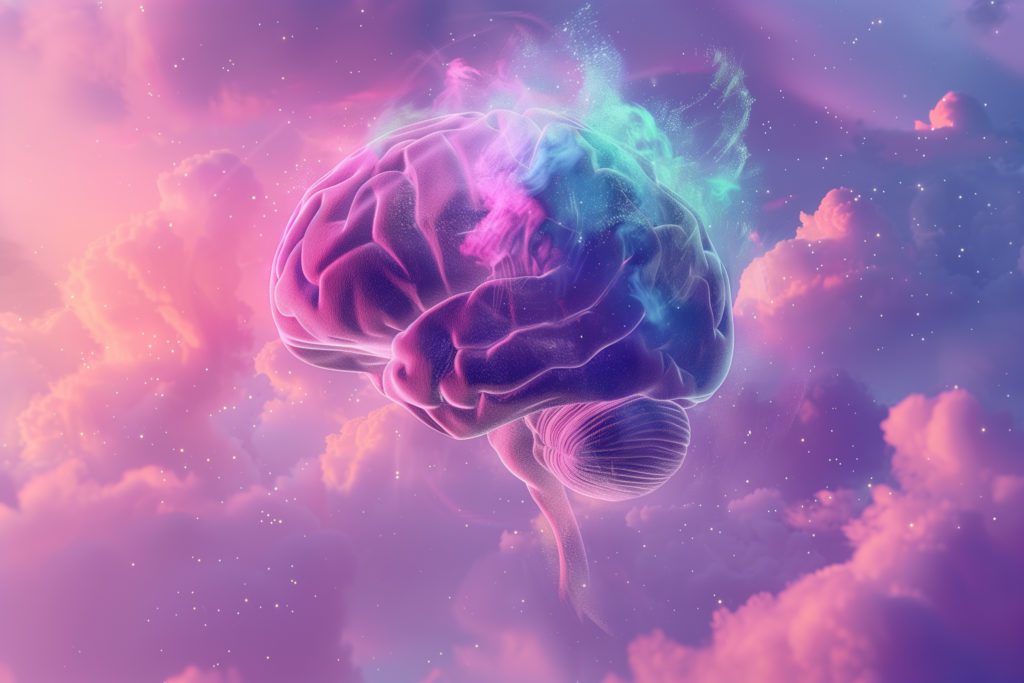
What Is a Fever Dream? Understanding Their Cause and Implications
Fever dreams, a common occurrence during periods of illness accompanied by high body temperature, are often vivid, bizarre, and intensely emotional.

These dreams can leave a lasting impression, prompting questions about their cause and implications for our health and well-being. This article delves into the science behind fever dreams, exploring what they are, why they occur, and what they tell us about the human brain's functioning under stress and illness.
The Phenomenon of Fever Dreams
Fever dreams are characterized by their vivid, often surreal content. They may involve complex narratives that are unusually intense or disturbing and are typically remembered more clearly than the average dream. However, what makes a dream a fever dream? The critical factor is the presence of an elevated body temperature, typically due to infection or illness, which seems to alter the dreaming experience.
Research into the nature of fever dreams is ongoing. Still, studies suggest that the increased metabolic rate of a fever might contribute to more vivid and frequent dreams. The heat generated by the body during a fever might affect brain function, leading to these intense dreams.
Understanding the Causes of Fever Dreams
The exact mechanisms behind fever dreams are not fully understood, but several theories have been proposed. One theory suggests that the increase in body temperature during a fever alters the brain's chemistry, affecting its ability to regulate sleep and dreaming. Fever can disrupt the sleep cycle, leading to more time spent in REM sleep, the stage of sleep when dreams are most likely to occur.
Another theory posits that the physiological stress of fighting an infection triggers more emotional and memorable dreams. The body's immune response to illness involves the release of cytokines, which are signaling proteins that can affect brain function and potentially influence dream content.
The Role of the Immune System in Fever Dreams
The intricate relationship between the immune system's response to infection and the occurrence of fever dreams highlights the body's complex mechanisms for managing illness. When the immune system detects a pathogen, it responds by releasing cytokines, which play a crucial role in fighting off the infection and profoundly impact brain function, including sleep and dream patterns.
These cytokines can cross the blood-brain barrier, influencing the hypothalamus, a structure deep in the brain that regulates body temperature and sleep cycles. The alteration in sleep architecture, particularly the increase in REM sleep, where dreams are more vivid and frequent, may explain the heightened intensity of dreams during fevers. This biological response suggests that fever dreams could be an unintended consequence of the body's effort to combat illness, illustrating the interconnectedness of immune reactions and neurological processes.
Psychological Perspectives on Fever Dreams
From a psychological standpoint, fever dreams may also reflect the mind's attempt to process and cope with the discomfort and stress of illness. The bizarre and often intense nature of these dreams could be a manifestation of the psychological turmoil that accompanies sickness.
The heightened emotional content of fever dreams, ranging from anxiety to surreal adventures, can serve as a mental escape mechanism or a way to process fears and anxieties related to one's health. This perspective is supported by theories of dream analysis, which suggest that dreams allow for emotional regulation and problem-solving, potentially offering insights into the dreamer's subconscious concerns and desires.
Therefore, fever dreams could be seen as a unique form of emotional processing that occurs when the body is under the stress of fighting an infection.
Implications of Fever Dreams for Health and Well-Being
While fever dreams are not harmful, they can be distressing and contribute to sleep disturbance. Understanding the implications of these dreams is essential for managing the overall comfort and well-being of individuals who are ill. Fever dreams can also provide insight into the brain's functioning under stress and the impact of physical health on dream content.
Some researchers believe fever dreams serve a psychological or physiological function, such as processing illness-related emotions or memories. However, more research is needed to understand the role and implications of fever dreams fully.
Enhancing Sleep Quality for a Healthier Life
Good sleep hygiene practices can significantly improve sleep quality, leading to better health outcomes and potentially fewer disturbances like fever dreams during illness. Simple adjustments such as establishing a regular sleep schedule, creating a calming bedtime routine, minimizing exposure to screens before bed, and ensuring a comfortable, quiet sleep environment can profoundly affect sleep quality.
Additionally, staying informed about how various factors, including diet, stress, and physical activity, influence sleep can empower individuals to make lifestyle changes that foster better sleep. Recognizing the intricate relationship between sleep, health, and dreams encourages a holistic approach to wellness, emphasizing sleep's critical role in maintaining physical, emotional, and cognitive health.
Practical Tips for Managing Fever Dreams
For those experiencing fever dreams, several sleep strategies can help manage their impact:
- Stay Hydrated: Dehydration can worsen fever symptoms and may contribute to the intensity of fever dreams. Drinking plenty of fluids can help mitigate this.
- Regulate Body Temperature: Using fever-reducing medication as directed by a healthcare provider and employing measures to cool the body can help manage fever and potentially reduce the occurrence of fever dreams.
- Create a Comfortable Sleeping Environment: Ensuring the room is comfortable and minimizing disturbances can promote more restful sleep.
Fever dreams, with their vivid imagery and emotional depth, serve as a reminder of the body's complex response to illness and the intricate ways in which our physical health is intertwined with our mental and emotional states. While the experience of fever dreams may sometimes be disconcerting, they also highlight the resilience and adaptability of the human mind.
By exploring the causes behind fever dreams and recognizing their potential significance, we can gain valuable insights into how our bodies communicate internal imbalances and stress through dreams.

Written by
Dr. Dusan Sekulic
Specializing in anesthesiology and intensive care, with experience working as a senior doctor on the cruise ship, I am skilled at navigating the complexities of managing various medical conditions, including hemodynamically unstable patients who need mechanical ventilatation. My expertise in airway management, resuscitation, and emergency medicine and intensive care is underpinned by a steadfast commitment to delivering unparalleled care, even in the most demanding of scenarios.
Download Pillow
Get help
Press & News
Legal
Connect
X (Twitter)
Company
Copyright © Neybox Digital Ltd.



